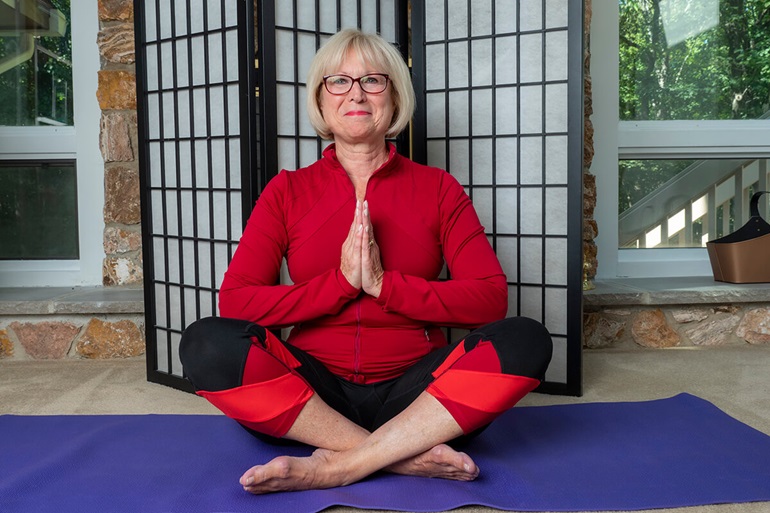Joan's story

“Being at Kessler was humbling. I’ve always been the caregiver and suddenly I needed people to take care of me… to help restore my strength and teach me the skills and strategies I needed to be safe, active and independent again. Without the dedicated rehabilitation I received, I wouldn’t be as self-sufficient as I am. And for that I’m eternally grateful.”
A new perspective
One in five women in the United States will have a stroke in her lifetime, but Joan Helfman never thought she’d be one of them. A cardiovascular nurse and past chair of the American Heart Association-Northern New Jersey Regional Board, Joan had been diagnosed many years ago with atrial fibrillation, an irregular heartbeat. While that put her at a five times greater risk for stroke, her condition was medically managed.
Yet on a hot summer day while out shopping with her husband, she felt a sharp pain in the back of her head, became extremely dizzy and experienced weakness on the right side of her body. She figured she was just dehydrated, but her symptoms persisted. Like so many women, as well as men, her initial reaction was denial. “This simply couldn’t be happening to me.”
But it was.
Joan headed to Saint Barnabas Medical Center where an MRI revealed a blood clot in her brain causing a stroke. Once stabilized, she turned to Kessler for help in overcoming significant physical, cognitive and speech deficits.
“Being at Kessler was humbling. I’ve always been the caregiver and suddenly I needed people to take care of me... to help restore my strength and teach me the skills and strategies I needed to be safe, active and independent again. Without the dedicated rehabilitation I received, I wouldn’t be as self-sufficient as I am. And for that I’m eternally grateful.”
Her personal experience has given Joan a new perspective and a renewed commitment to raising awareness about the risks and warning signs of a stroke and she continues to advocate for funding, research and education programs. “I will continue to use my voice to help others understand how important it is to take responsibility for their health.”